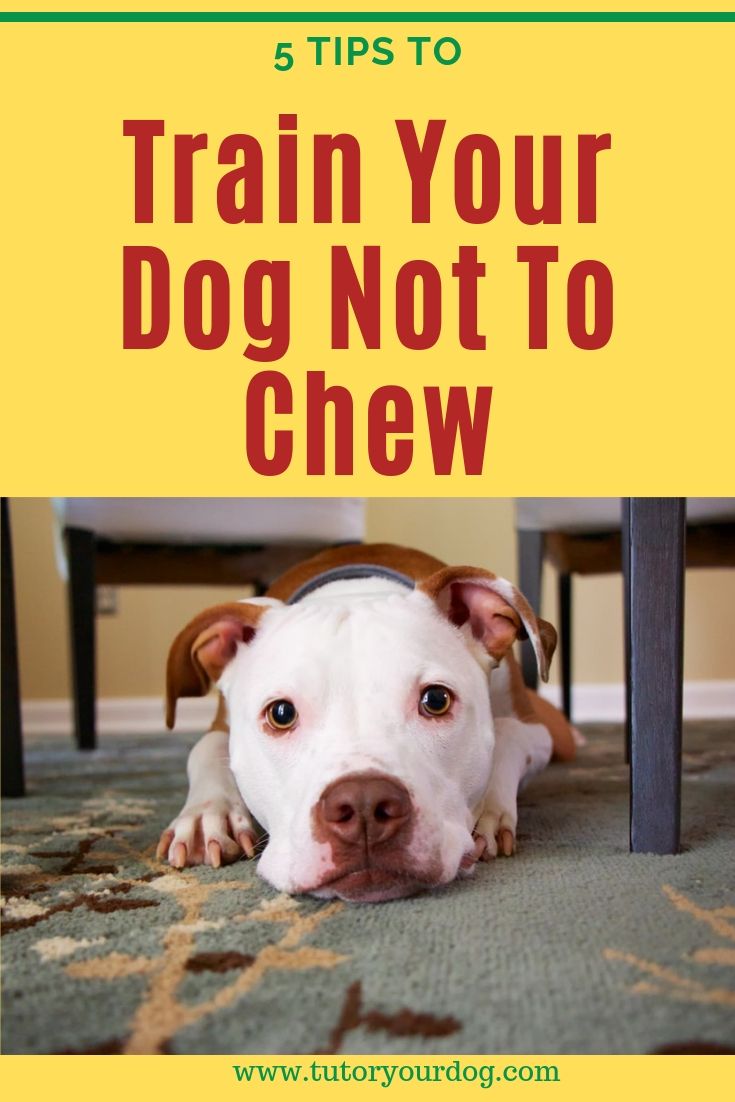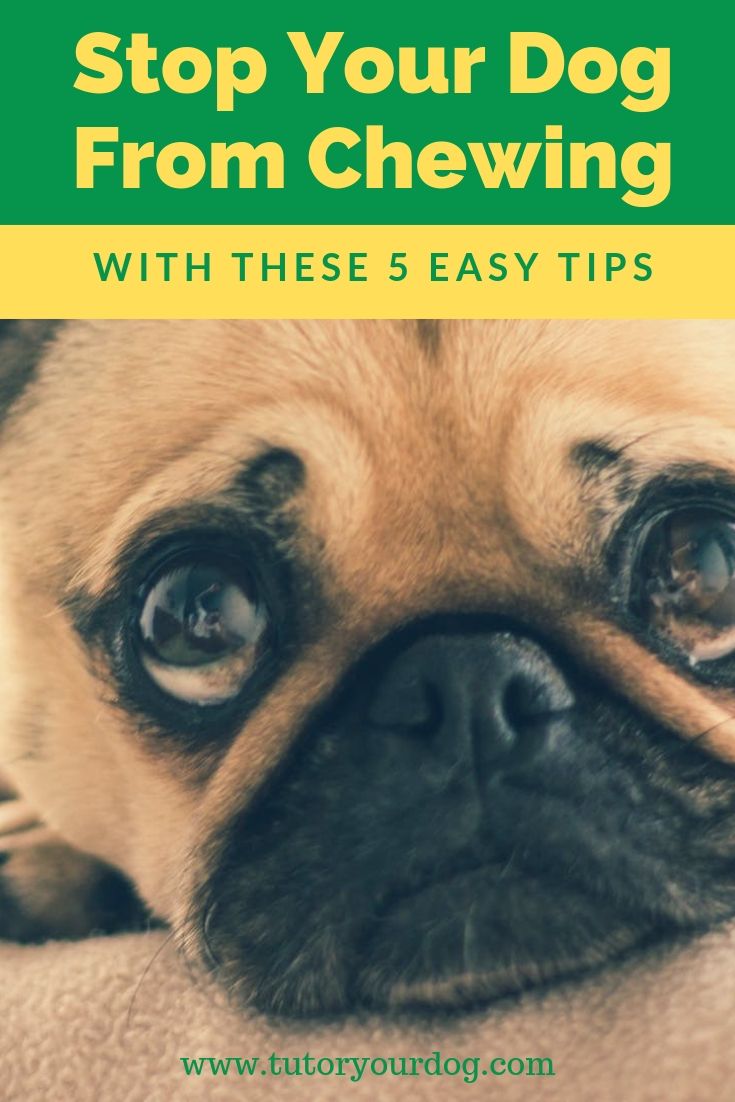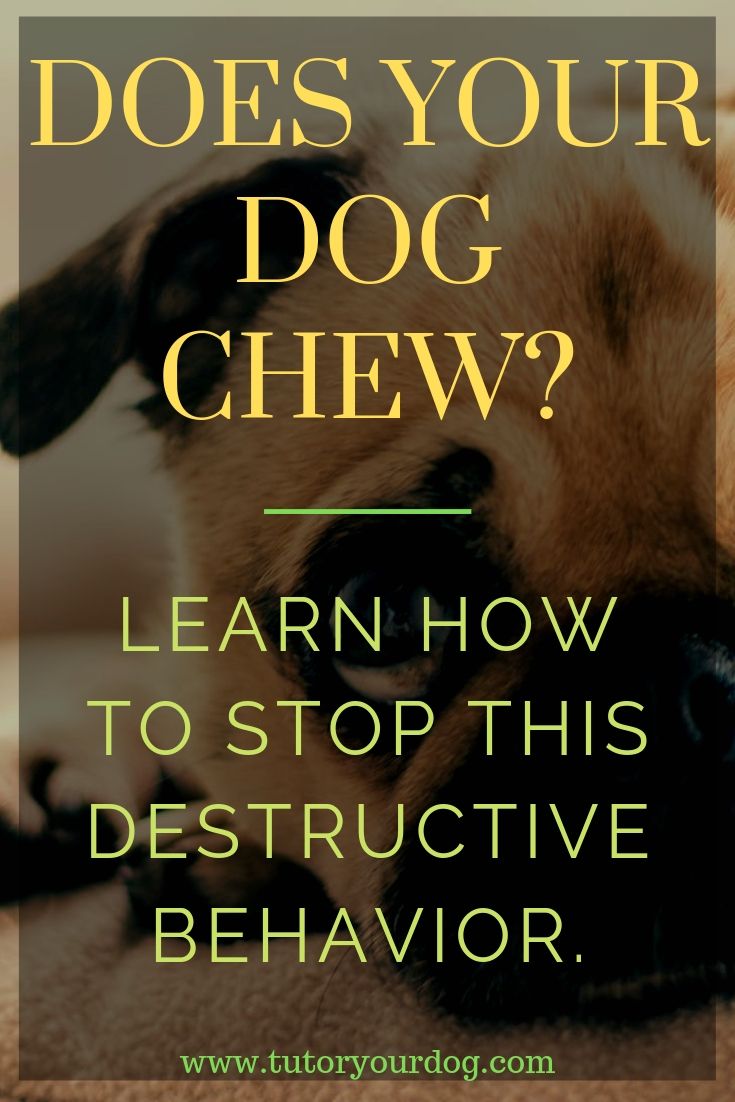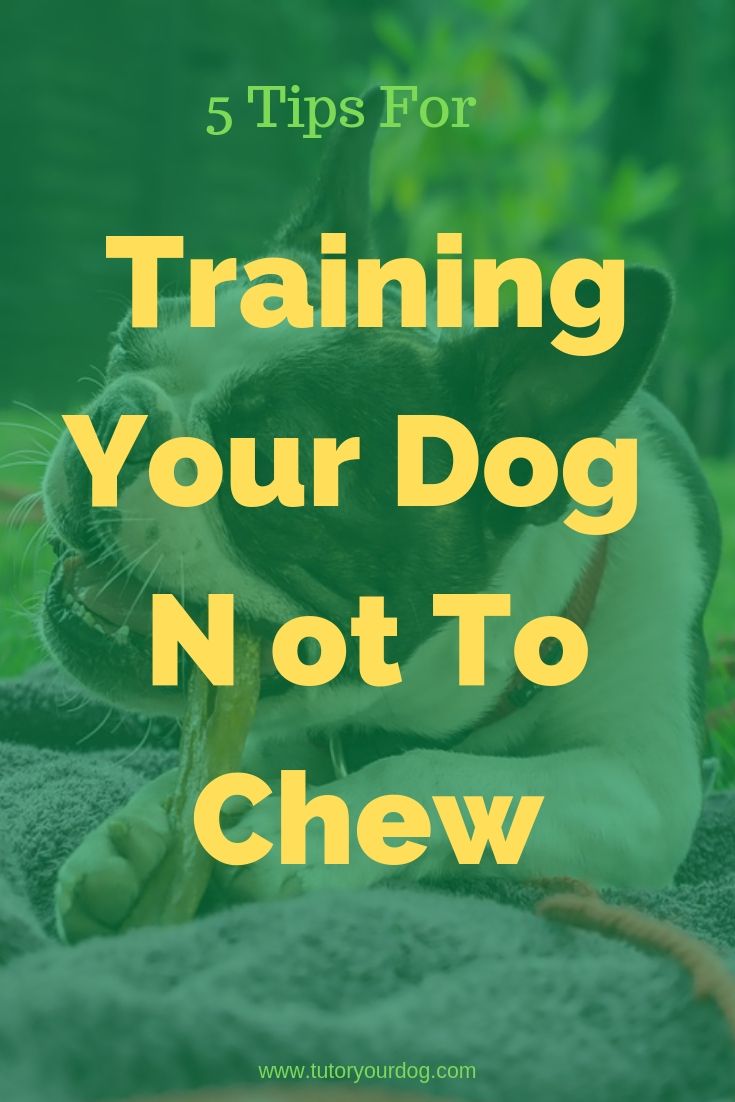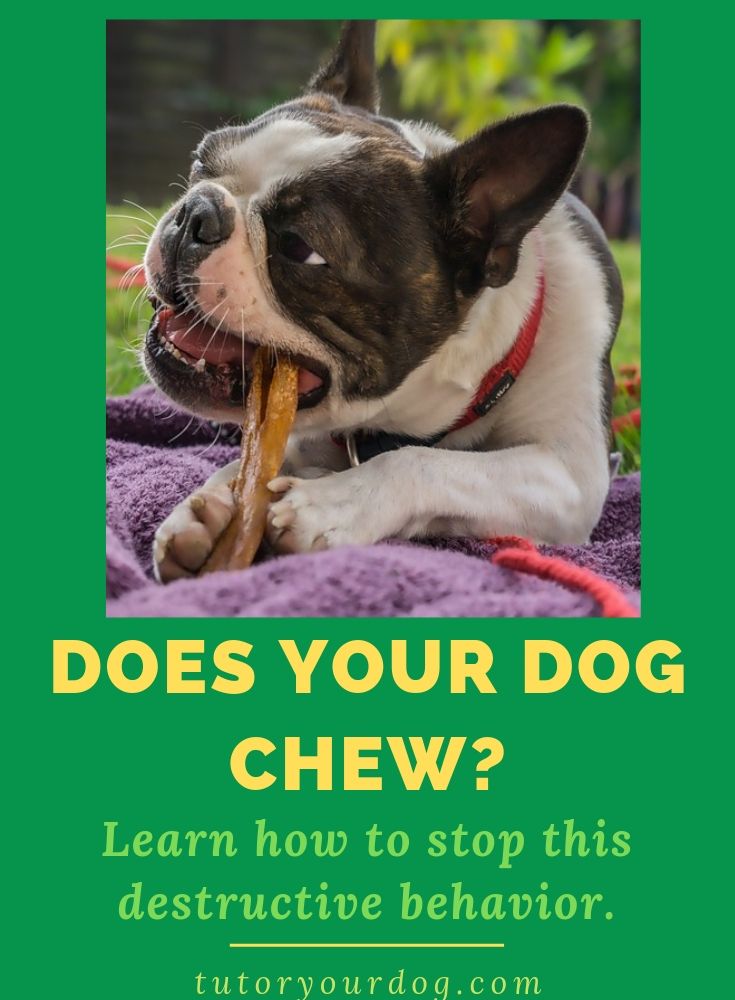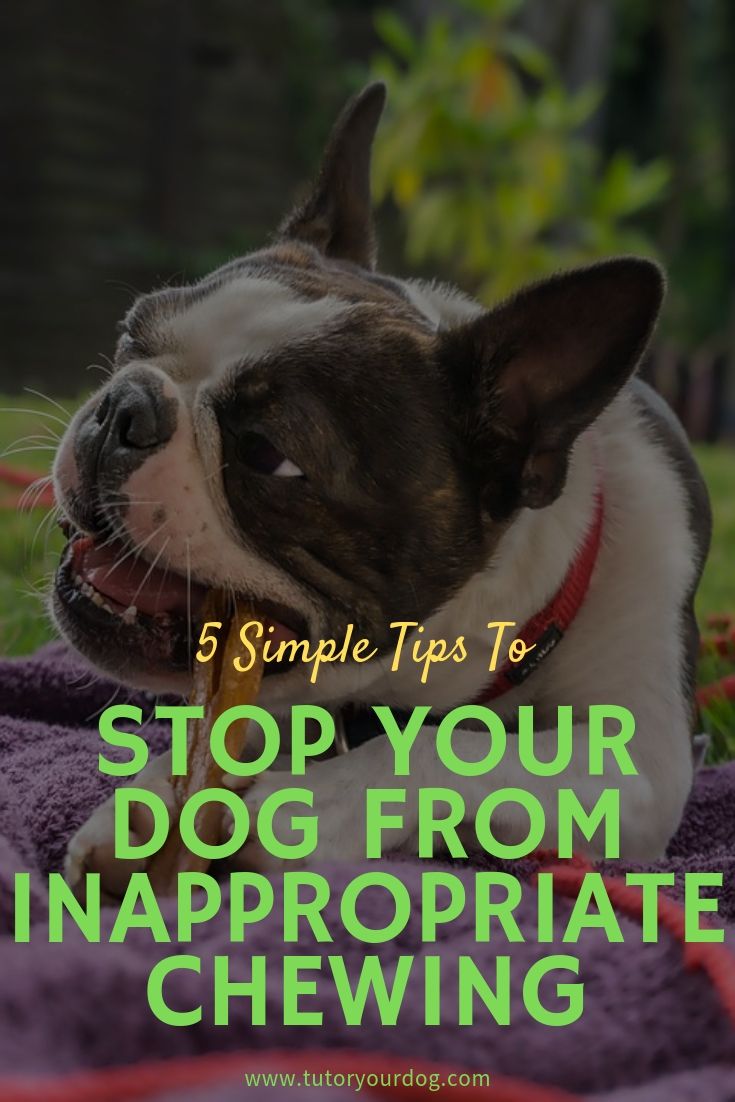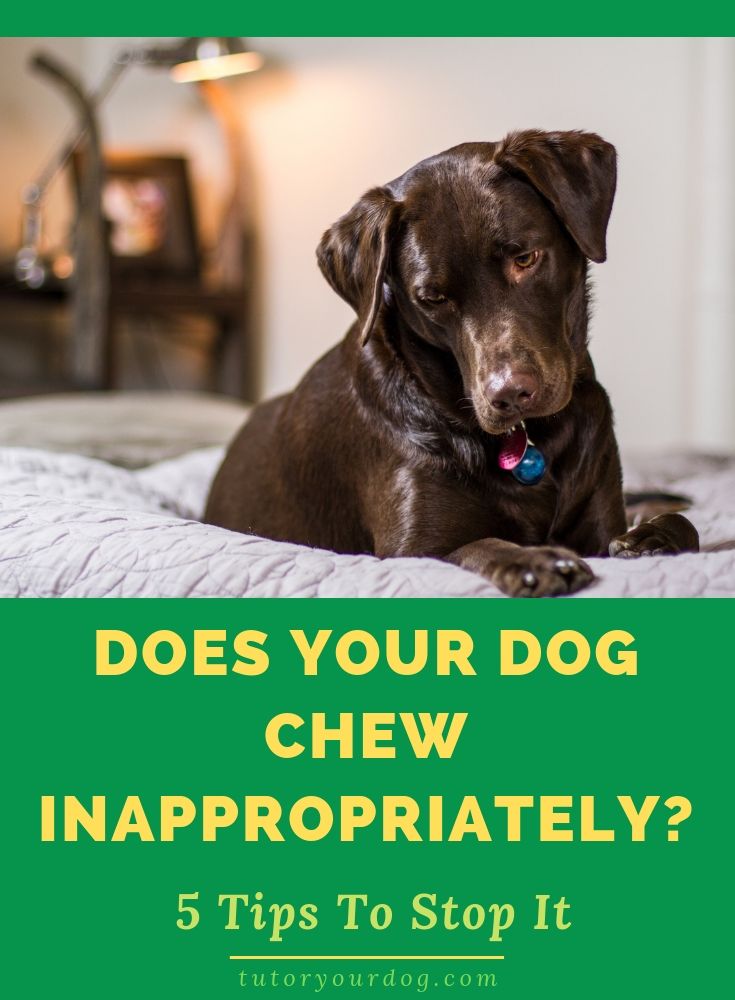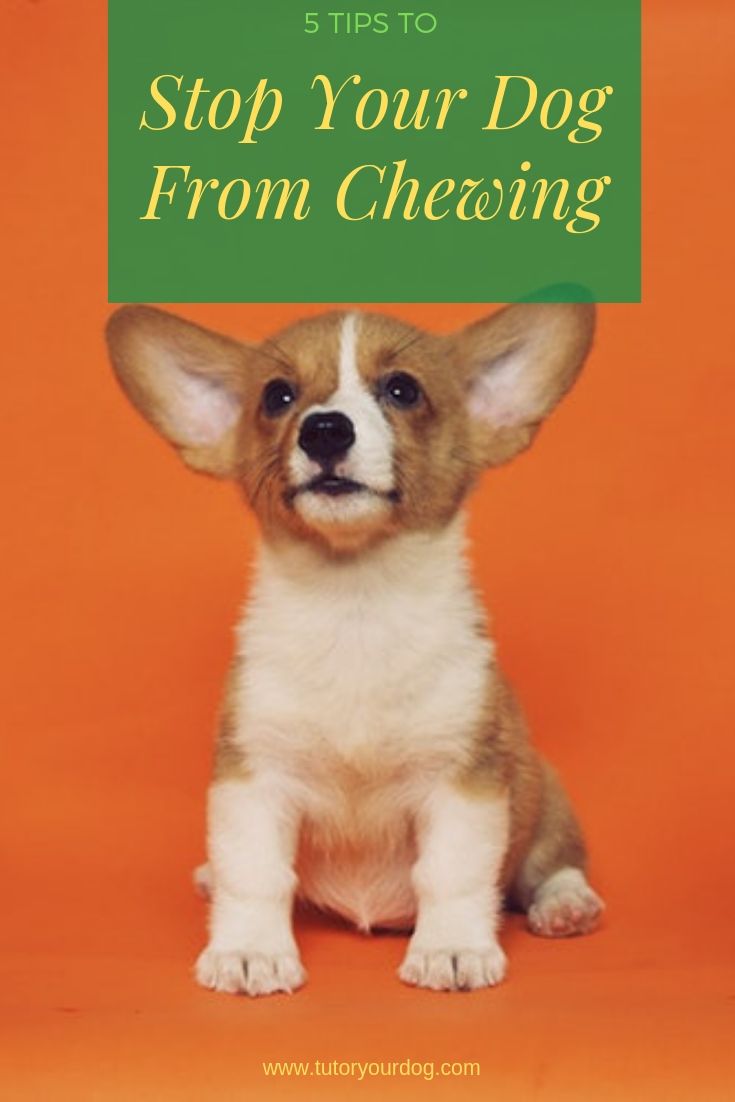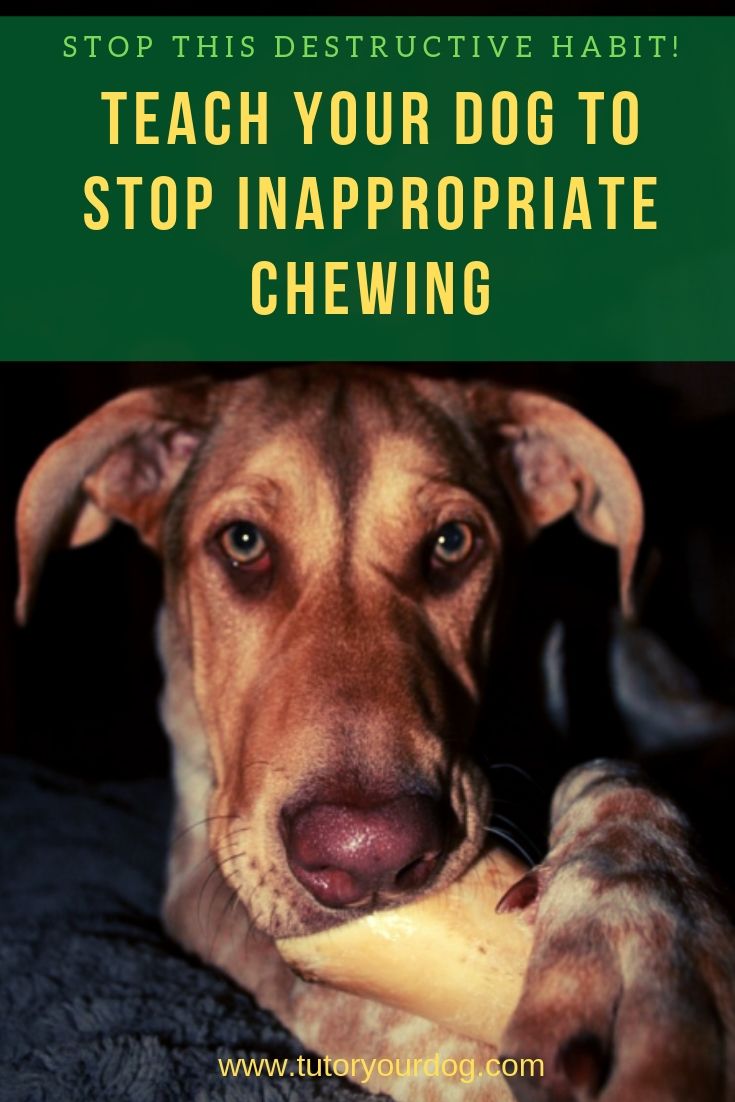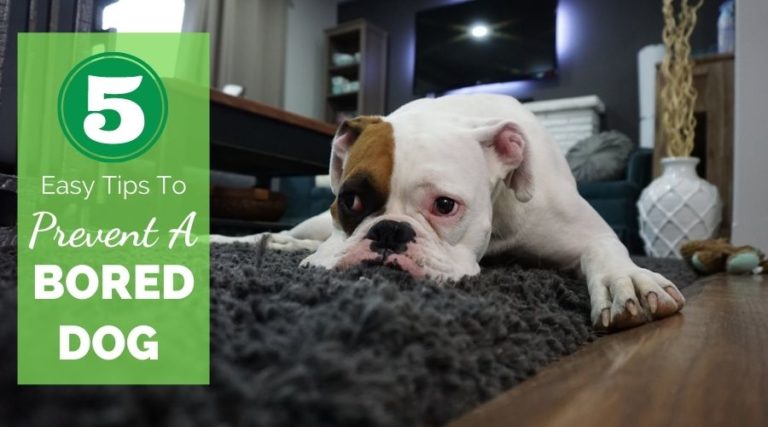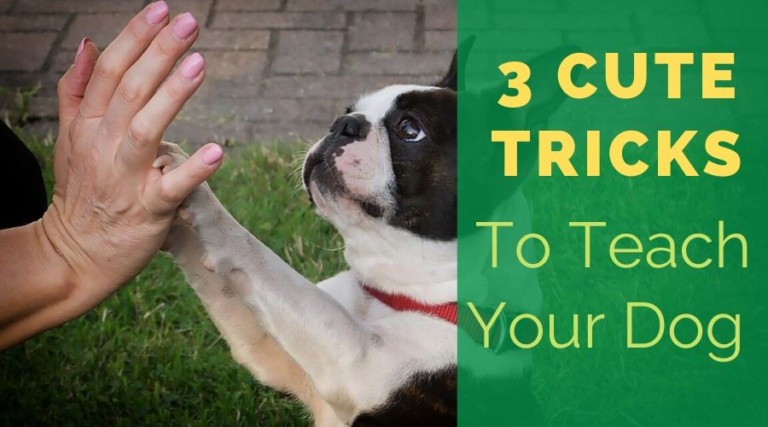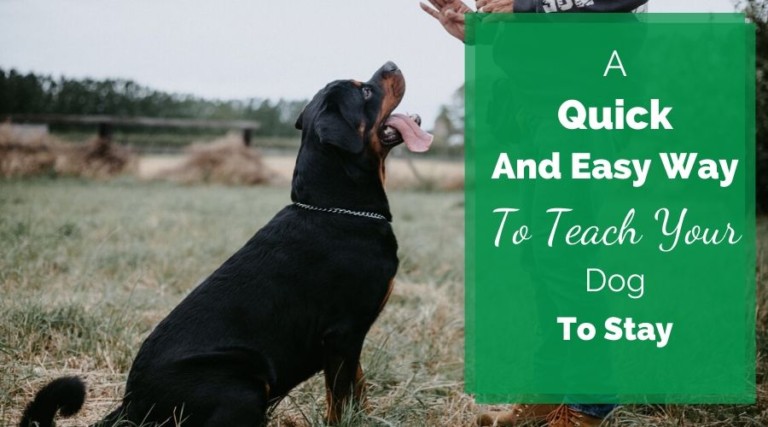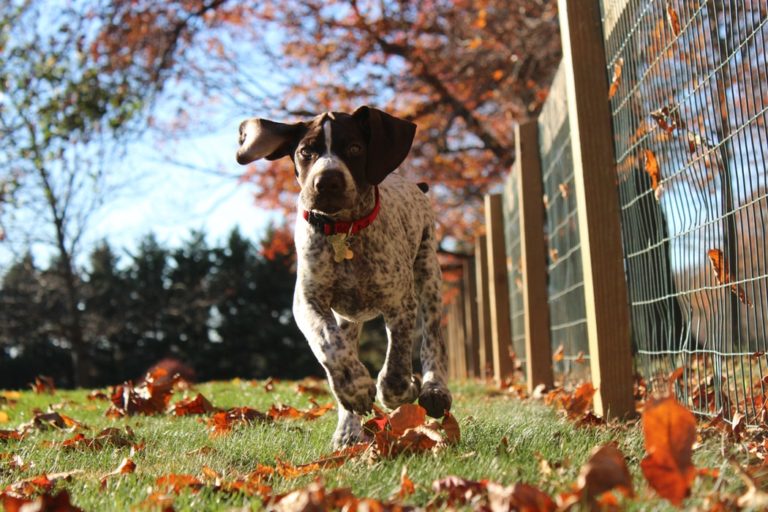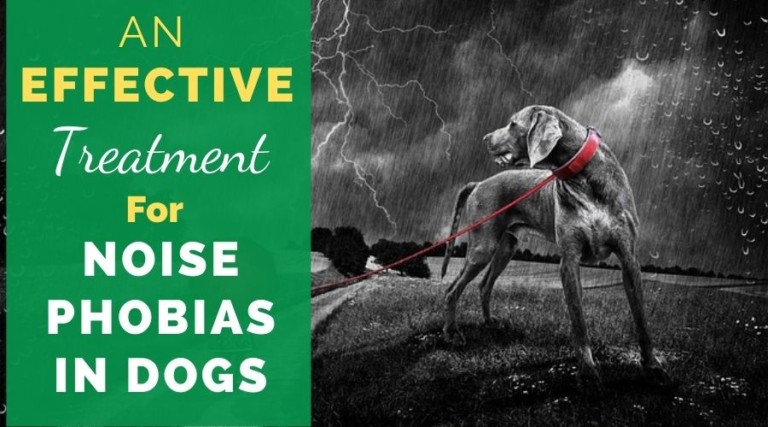{This post may contain affiliate links. This means we may make a small commission at no extra cost to you. This website is a participant in the Amazon Services LLC Associates Program. As an Amazon Associate we earn from qualifying purchases. We only recommend products that we believe will be of value to our followers. Click HERE to see our disclosure for details.}
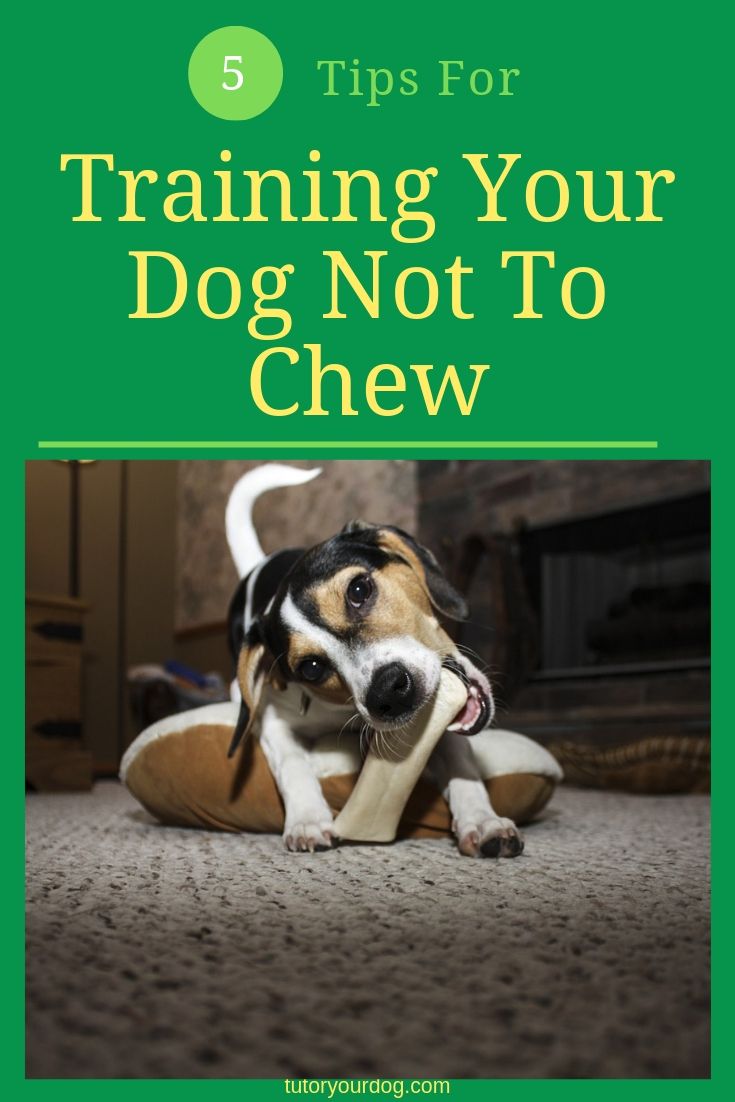
Chewing is something that comes naturally to every dog. Chewing on specially designed chew toys for instance, can even help the dog clean his teeth and remove plaque. Even though chewing is natural and healthy, that does not mean that your dog should be allowed to chew everything in sight. It is vital for every dog to learn what he is allowed to chew on. Providing him with chew toys like dental toys and ropes help him to make good decisions. He then needs to learn what things are off limits, such as carpets, shoes and other items. You can teach him this by training your dog not to chew on inappropriate things.
Tips For Training Your Dog Not To Chew Inappropriate Things
Keep your dog confined when you can’t supervise him until he learns not to chew.
When you bring home a new puppy, he should never be unsupervised. Not only to prevent him from developing bad chewing habits but also to work on house training. When you cannot supervise your puppy he should be in a crate, this is called crate training. When you supervise your puppy, you can teach him what he is and is not allowed to chew on. This will help him develop appropriate behaviors.
Older dogs should also be confined to a small area or crate at first when not supervised. Doing this allows the dog to slowly acquaint himself to the smells and sights of the new household. When you set up this small, confined area, be sure to provide the dog with a few good quality chew toys to keep him entertained while you are not able to supervise him. Of course the dog should also be provided with a warm place to sleep and plenty of fresh clean water.
Keep items out of reach of your dog until he can be trusted not to chew.
As the dog is slowly moved to larger and larger portions of the home, there may be more opportunities to chew inappropriate items. When the dog is given freer access to the home, it is important to keep any items that the dog or puppy should not chew, things like throw rugs, shoes, etc., up off of the floor. If you forget to move something and come home to find that the dog has chewed it, resist the urge to punish or yell at the dog. Instead, distract the dog with one of its favorite toys and remove the inappropriate item from its mouth.
Provide your dog with chew toys.
Your dog should be provided with chew toys. Praise the dog extensively when he picks up and begins to chew his toy. This will help to teach the dog that he gets rewarded when he chews certain items, but not when he chews other items.
Teaching the dog what is appropriate to chew is very important. This is not only for the safety of your expensive furniture and rugs, but for the safety of the dog as well. Many dogs have chewed through dangerous items like extension cords and the like. This of course can injure the dog severely, requiring surgery or even spark a fire.
Provide your dog with enough exercise and mental stimulation.
Most dogs learn what to chew and what not to chew fairly quickly, but others are obviously going to be faster learners than others. Some dogs chew because they are bored, so providing the dog with lots of toys and interactive games is very important. It is also a good idea to schedule several play times every day, with one taking place right before you leave every day. If the dog is thoroughly tired after his play session, chances are he will sleep the day away.
Work on any behaviors that may be causing your dog to chew.
Some dogs chew to exhibit separation anxiety. Many dogs become very nervous when their owners leave, and some dogs become concerned each time that the owner may never come back. This stress can cause the dog to exhibit all manners of destructive behavior, including chewing or soiling the house. If separation anxiety is the root of the problem, the reasons for it, must be addressed.
There are ways to help your dog deal with separation anxiety. Start by scheduling several trips in and out of the home every day. Staggering the times of those trips in and out help too. At first the trips should be only a few minutes. The length can slowly being extended as the dog’s separation anxiety issues improve. Eventually your dog will realize that you are coming back each time that you leave.
Training your dog not to chew inappropriate items is not difficult. It just takes consistency and patience. Comment below with any tips you may have to stop your dog from chewing.




